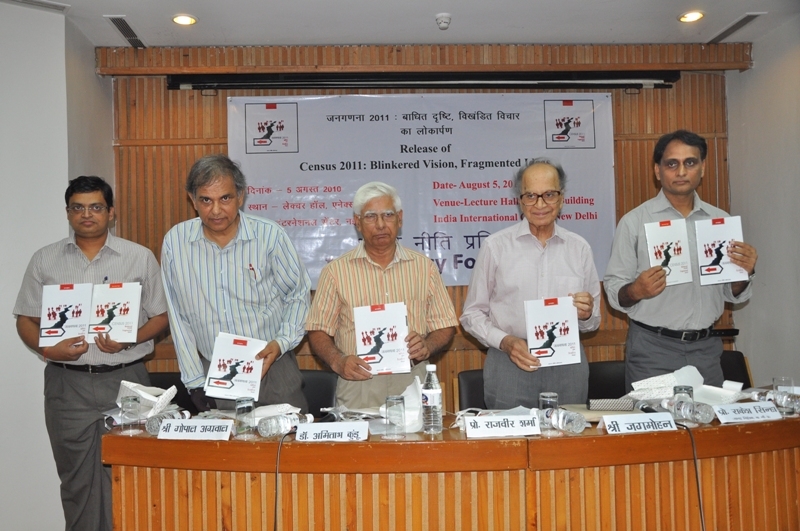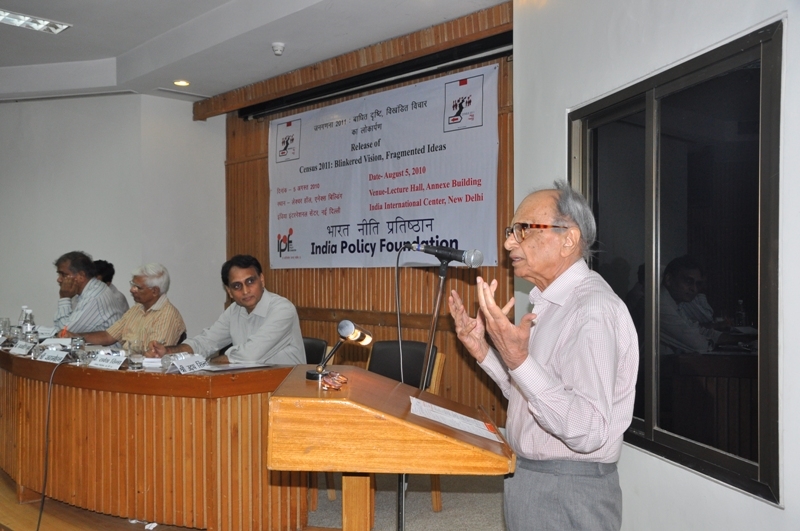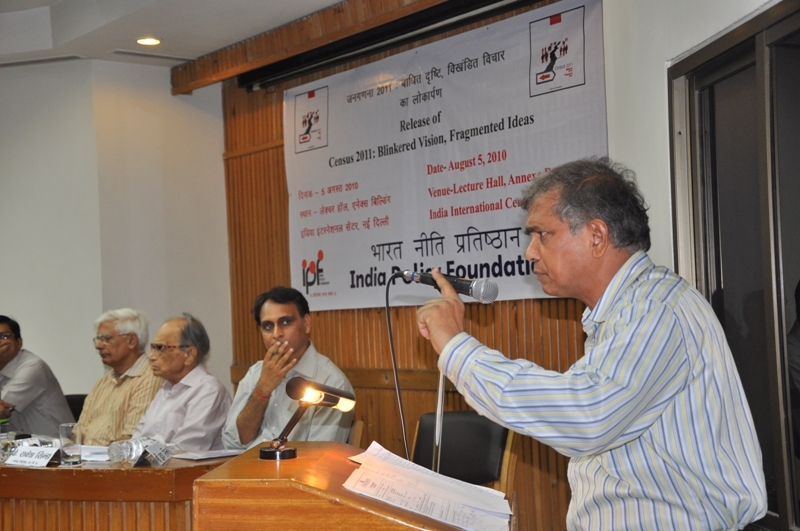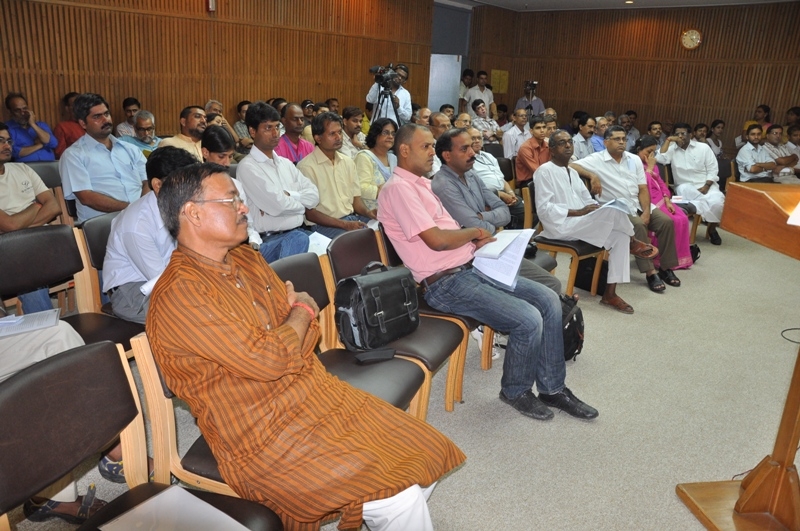Census 2011: Blinkered Vision, Fragmented Ideas
Total Views |

August 5, 2010, India International Centre, New Delhi
Released by: Sh. Jagmohan, Former Union Minister,
Main Speaker: Dr. Amitabh Kundu, Professor, JNU
We proudly proclaim the unity and diversity of our country, but the very unity is undermined when we invoke the diverse aspects of our society to suit the demands of power politics. The caste census is a case in point. Prof. Rakesh Sinha, Hon Director, IPF, has come up with an intervention paper, Census 2011: Blinkered Vision, Fragmented Ideas. The paper has made impartial observations on the narrow sectarian content of the recent caste census. Many relevant data, reports and analysis concerning census and caste census from its very inception in India are documented here.

Releasing the book, former Union Minister Jagmohan made it clear that caste enumeration is only going to cause enmity in the society. The people should be recognized on their nationality, but not on caste basis. The word caste must be removed from the Constitution. Caste enumeration is going to weaken the country. Coalition governments are the result of caste politics.
Amitabh Kundu told the gathering that if caste numbers are to be collected, it can be done honestly through the National Sample Survey. Development might need caste numbers but there is no need that it should be done through census. Prof Rajvir Sharma urged the media to initiate extensive dialogue in the society. The IPF feels that there was an agreement to work towards formation of a castles society in the country. Caste enumeration is going to harm the social fabric of the country, and casteism will grow.
The intervention paper has been prepared after numerous brain-storming sessions attended by teachers, journalists, advocates and members of the civil society. The paper discusses two major issues which are currently in debate. They are caste enumeration and collection of data for the National Population Register (NPR) along with the census exercise.

The IPF shares the view of the brainstorming sessions that the founding fathers of the Constitution were in favour of building casteless society and therefore made every possible effort to ignore caste in the public domain. They thought that it was a prerequisite to achieve our constitutional goal of establishing an egalitarian social order. The nature of the demand for caste enumeration is largely political than social. The IPF feels that identity-based politics may trivialise democratic traditions. The affirmative use of the data may ultimately prove to be a cover for the larger game of client-based politics. The foundation feels that to count caste there are several State commissions and the National Commission for Backward Classes (NCBC), and why make the census a vehicle for it?
There is confusion among the citizens over the issue of National Population Register (NPR), the process of which should have been started only after launching an extensive awareness campaign. There are certain issues that raise doubts. Is the NPR a legal document? If yes, has the information provided on nationality been verified? Is it possible to collect data for the preparation of National Population Register separately considering large-scale infiltration in the country? The document throws some light on all such issues for the benefit of the civil society. It was released one day before the GOM set up by the government was scheduled to meet on August 6, 2010.

The IPF is of the view that the collection of data for the preparation of the NPR should not be clubbed with census exercise. The data collected must be verified before entering into the NPR. Self-declared nationality is another serious issue that should be verified before it is legally accepted and entered into the Register. If this is not done, crores of infiltrators would get the opportunity to legitimise their presence in the country. In the process, they would become Indian citizens. The intervention paper is also available in Hindi titled ‘Janaganana 2011: ‘Badhit Drishti Vikhandit Vichar’.